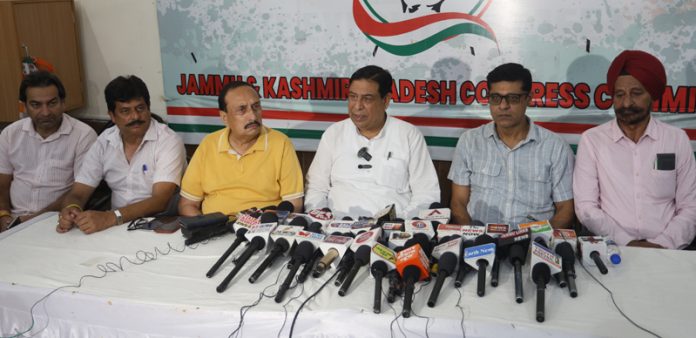
The effrontery of David Seymour’s riposte to Church leaders over his Treaty Principles Bill is breathtaking. He accuses them of being undemocratic. When the Act Party took the idea of a referendum on Te Tiriti to a general election in 2023, it won just 8.
6 percent of the vote. The other 91.4 percent of the electorate did not support the proposal.

In a democratic society, that should have been the end of the matter. Having failed to win a democratic mandate for its proposal, Act made this a bottom line in coalition negotiations. Although National had won 38 percent of the vote, and its leader Christopher Luxon knew that Act’s proposal for a referendum on Te Tiriti lacked electoral support, it agreed to let it proceed to a select committee.
This was an error of judgment, in defiance of the will of the people. Act’s draft Treaty principles, as leaked in a Justice Ministry paper and subsequently , are a travesty of the original document. Te Tiriti o Waitangi is written in te reo, at a time when that language and its associated tikanga were dominant in New Zealand.
In France, say, or Germany, it would be impossible for a person who did not speak French or German, and knew very little about French or German culture and history, to try and instruct the people of those countries about the meaning of a significant historical constitutional document written in French or German. Such an attempt would be regarded as preposterous, and dismissed out of hand. The fact Act’s bill has any traction at all in the political process in New Zealand is a stain on our democracy.
Instead of a deeply informed, honest debate about the significance of Te Tiriti, Act is putting its faith in the power of propaganda – the spread of misinformation channelled through social media, newspaper wraparounds and advertisements, pamphlets in letter boxes and the like. The material that has been distributed so far is misleading, and deliberately divisive. It seeks to set other New Zealanders against the right of Māori people to be Māori, and to treasure their ancestral taonga, including the promises Queen Victoria made to the rangatira of the hapū in Te Tiriti in 1840.
Act’s attempt to claim its rewriting of Te Tiriti as a defence of democracy is a farce. Indeed, in 1840, te ao Māori was in many ways more democratic than the United Kingdom. As Francis Dart Fenton, a distinguished judge of the Land Court, remarked, “No system of government that the world ever saw can be more democratic than that of the Maoris.
The chief alone has no power. The whole tribe deliberate on every subject, not only politically on such as are of public interest, but even judicially they hold their “komitis” on every private quarrel. No individual enjoys influence or exercises power, unless it originates with the mass and is expressly or tacitly conferred by them.
” At a time when married women in Britain did not enjoy property rights or the vote, Māori women inherited land from their parents and grandparents, and female rangatira and tohunga exercised considerable influence. In the United Kingdom, on the other hand, under the doctrine of ‘coverture,’ women and children were legally the property of their husbands and fathers, who were entitled to use corporal punishment as a form of discipline, and married women had no independent property rights. The King or Queen was the head of state, and governance was shared between the House of Lords or the ‘upper House,’ and the House of Commons, reflecting a powerful class system.
At that time, the franchise was limited to men, and only men with a certain amount of property. In 1833 in England and Wales, for instance, only about 1 in 17 men who lived in towns and 1 in 24 men in rural areas had the franchise, while in Ireland, about 1 in 26 urban men and only I in 114 male country dwellers could vote. For all of these reasons, Article 3 in the English draft of the Treaty, in which the Queen of England gave the indigenous inhabitants “all the Rights and Privileges of British Subjects,” was not much of a gift.
Under English rule, tāngata māori – especially women – lost many of their ancestral freedoms. Act’s attempt to rewrite Te Tiriti as introducing ‘one person one vote’ to New Zealand is simply not true. When the first election was held in New Zealand in 1853, for instance, only men had the right to vote.
They had to be British citizens, 21 years old or more, and as in Britain, own property over a certain value. That excluded most Māori, whose land was held in common by kin groups. The right to vote was extended to all Māori men in 1867, who elected 4 Māori MPs to the House of Representatives; and to all European men in 1879.
In 1893, women, including Māori women, finally won the right to vote in national elections. This world-leading shift came about in part because Māori women enjoyed leadership roles and property rights at a time when these were denied to European women. For all these reasons, Act’s draft ‘Treaty Principles’ bill lacks historic, linguistic and democratic merit.
A debate on the contemporary significance of Te Tiriti o Waitangi should have mana and gravitas, and be mutually respectful. It should involve the Governor-General as the King’s representative, and the rangatira of the hapū, with the wider community through deliberative processes informed by dispassionate, truthful inquiry. As Act’s proposal goes to the Cabinet on Monday, New Zealand – and the wider world – will be watching.
If the Cabinet wishes to bring New Zealanders together, not drive them apart, it will craft such a process. If Act’s proposal is supported, it will be a slap in the face to the honour of the Crown, as well as to te ao māori, and the outcome will be radically destabilising. Is this coalition Government driven by self-interest, or the interests ‘of the people, by the people, for the people?’ We’re about to find out.
.










